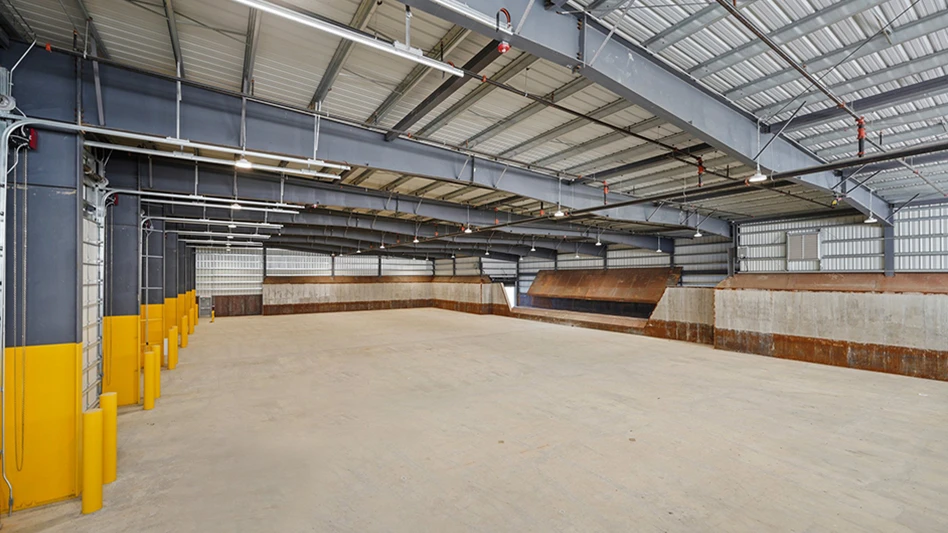
© Newport Coast Media | stock.adobe.com
Southern California Gas Co. (SoCalGas) announced that Kore Infrastructure, a California-based renewable energy provider, has begun testing and demonstrating its carbon-negative, waste-to-energy modular system at the utility’s Los Angeles facility.
According to a release, the technology is designed to divert organic waste from California landfills and convert it into carbon-negative hydrogen and renewable natural gas (RNG). These clean fuels can be used to reduce greenhouse gas emissions from industrial processes and hard-to-electrify sectors, including transportation.
SoCalGas contributed $1.5 million to the demonstration project, which has also received funding from the South Coast Air Quality Management District (South Coast AQMD).
Kore’s modular system uses a proprietary pyrolysis process, which heats organic waste under high temperatures in a zero-oxygen environment. This process converts the waste to a blend of gases that can be converted to carbon-negative hydrogen or RNG, along with a solid carbon char that can be used to enhance soil quality or help decarbonize cement and steel production.
“This is the type of novel approach that we need to see more of that uses sustainable processes," says Ben J. Benoit, chair of the South Coast AQMD Governing Board. "Not only will it divert material from landfills, but the process will create clean energy sources that can be used in fuel cell vehicles and other clean-air technologies.”
“In California, transportation causes approximately 40 percent of greenhouse gas emissions,” says Cornelius Shields, CEO and founder of Kore Infrastructure. “We're collaborating with waste, energy and transportation sector leaders to provide a ‘made-in-America,’ carbon-negative energy solution. Our UltraGreen hydrogen will be the fuel of the future for light-duty vehicles, heavy-duty trucks and buses, ensuring our supply chain is emissions-free, sustainable and affordable.”
Kore plans to demonstrate the production of over 99 percent pure hydrogen that would be suitable for fuel cell electric cars, trucks, buses and trains by the third quarter of 2022. The demonstration facility has the potential to process up to 24 tons per day of organic feedstock and produce up to one metric ton of carbon-negative, UltraGreen hydrogen per day—enough hydrogen for over 1,400 fuel cell electric cars.
SoCalGas has more than 10 active hydrogen pilot projects. Last year, SoCalGas submitted several research and development initiatives to the U.S. Department of Energy's Earthshot Hydrogen Program's Request for Information, which is designed to accelerate and enable low-cost clean hydrogen, create jobs and facilitate a net-zero carbon emissions economy by 2050.
Get curated news on YOUR industry.
Enter your email to receive our newsletters.Latest from Waste Today
- ReMA board to consider changes to residential dual-, single-stream MRF specifications
- Miller Environmental Group Inc. appoints CEO
- DPI acquires Concept Plastics Co.
- Laurel Mountain Capital announces investment in 5280 Waste Solutions
- Cielo investor requests annual meeting
- WIH Resource Group celebrates 20th anniversary
- NWRA: NIOSH cuts a step in the wrong direction
- Valicor Environmental services acquires Affordable Waste Management






